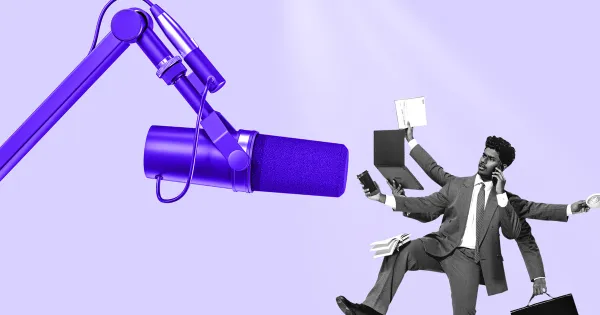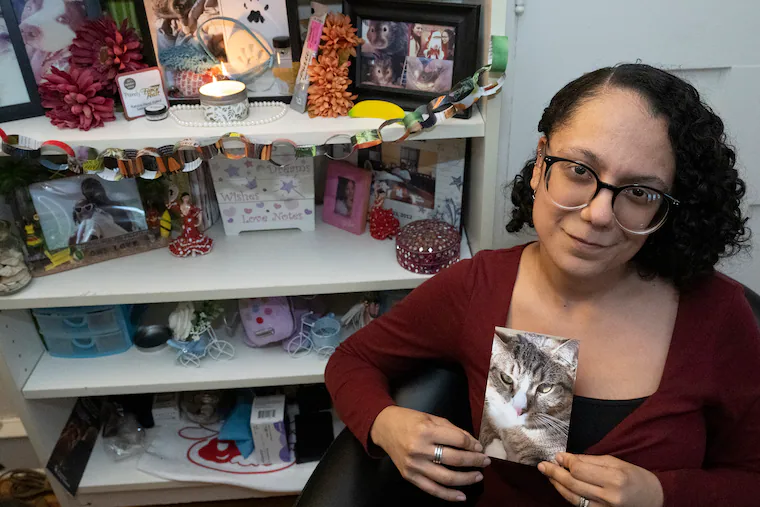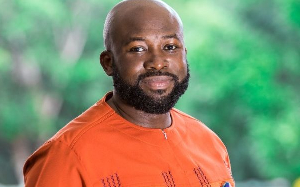Copyright Adweek

On Tuesday, the business news publisher Morning Brew announced the launch of a new podcast, called People Person, to complement its business-to-business franchise HR Brew. The show, however, will not be hosted by a journalist, social media lead, or even a professional podcaster—instead, it will be led by Kate Noel, the senior vice president of people operations at Morning Brew. The podcast, which will explore the complexities of running a human resources department in this particularly disruptive moment, is not the only Morning Brew podcast helmed by its commercial staff. Per My Last Email, a career advice podcast launched by Morning Brew in April 2024, is led by Morning Brew chief of staff Kyle Hagge and director of consumer revenue Kaila Lopez. And, according to Morning Brew president Devin Emery, more such products are in the works. “We have Revenue Brew, so if we decide to do content for that, we would want someone from our sales team to be talent,” Emery said. “We are building out a mechanism that enables not just our journalists, but also our business-side folks, to be creators.” Even in a media landscape where journalists are increasingly encouraged to imitate influencers, this arrangement stands out. It is one thing to ask a reporter, who has nominally agreed to act in some sort of public-facing capacity, to speak into a mic or get in front of a camera. It is another thing entirely to ask that of your rank and file staff. But when it comes to creator strategy, Morning Brew has historically been ahead of the curve. Axel Springer acquired the startup in October 2020 for $75 million largely because it appealed to younger audiences, a feat it accomplished in part through its early embrace of influencers. Nearly from its inception, Morning Brew paired a distributed approach to editorial—building around franchises, each with newsletters, podcasts, and video, rather than a singular website—with a cinematic universe of social media creators. These creators were given an expansive remit to create seemingly whatever kind of content they wanted, so long as it tied tangentially back to the world of business. Several of these ambassadors, including Dan Toomey and Macy Gilliam, have become bona fide stars in their own right, and their virality has lent a halo effect and heightened brand awareness to their employer. Now, Morning Brew is once again seizing on an emergent trend. The rise of the B2B creator In recent years, a new cohort of creator—the B2B influencer—has emerged, thanks largely to platforms like LinkedIn. These creators often tout their expertise in specific professional disciplines to capture attention in the nebulous world of thought leadership. Folks like Lenny Rachitsky, Colin and Samir, and Link in Bio’s Rachel Karten have helped pioneer the field. For B2B marketers, these creators serve a function similar to that of their consumer counterparts: they review products, create compelling content, and help their brand partners win business. The field has grown rapidly. According to a 2024 survey from TopRank Marketing, 81% of B2B marketers now have dedicated influencer marketing budgets. 53% said their budgets were growing, and 9% said they planned to introduce such programs in 2025. For Morning Brew, just as the publisher was quick to incorporate creators into its consumer-facing brands, it now wants to do the same for its business-facing portfolio, which includes franchises like HR Brew, Revenue Brew, IT Brew, and Marketing Brew. The qualifications for these creators, though, are somewhat different from standard influencers, according to eMarketer analyst Emmy Liederman. In an April 2025 report from eMarketer surveying the top criteria for working with B2B creators, marketers ranked authenticity and credibility first (58%), ahead of industry relevance (49%), subject matter expertise (47%), and audience engagement (45%). What matters most in the world of B2B influencing, then, is not audience size, notoriety, or even market-commanding expertise. Instead, what resonates is a sense of legitimacy, something that actual practitioners have in spades. “In typical influencer marketing, engagement is at the top,” Liederman said. “With B2B marketing, what moves the needle is showing that you have authority.” Good talent is hard to find Critically, Morning Brew does not consider People Person or Per My Last Email to be B2B marketing, according to Emery. They aren’t selling a service, only capturing attention. Still, whether the content is marketing or editorial, what attracts an audience remains somewhat universal. And key to that endeavour is finding the right talent. Morning Brew has intentionally opted to recruit in-house for its talent, pointing to the known culture fit and lower initial investment as rationale, Emery said. It is not opposed to recruiting outside talent, but its first instinct is to look internally. Noel, for instance, has been with the publisher for five years and is “electric—somebody you remember meeting,” according to Josh Kaplan, founder of the B2B creator agency Smooth Media and a former Morning Brew employee. “It’s hard to find good talent in the world of B2B creators,” Kaplan said. “So if you happen to have that talent as your director of HR, you probably want to take advantage of it.” The prospect of recruiting internal talent to serve in roles outside of their stated job description could raise potential issues, according to Liederman. How the employee is compensated, whether they feel comfortable declining to participate, and the effect of the additional workload are all points of concern. In the case of People Person, Noel receives a share of the revenue she generates, according to Emery, although he declined to offer further details. She also volunteered for the opportunity, rather than being asked to participate, Emery added. She’d also been featured in Morning Brew’s editorial offerings before, answering reader questions for the “Make It Work” advice column. The new responsibilities do not change the employment relationship between Noel and Morning Brew—she is not “talent,” at least in the contractual sense. And the publisher, which has nearly a decade of experience in working with creators, will use producers to script the show, Emery said. Company booster But even with these guardrails in place, the move to cast revenue-side staff as creators underscores a pivotal shift in how companies are navigating the boundary between their employees’ personal and professional lives. Increasingly, your presence on the internet is tied to your profession, which means both your digital and analog behavior can ultimately reflect on your employer. Look at the Coldplay kiss cam scandal as evidence of how quickly a personal affair becomes a corporate concern. When it comes to the intersection of your personal social presence and its relationship to your job, the distinction between the two is growing thin. Of course, this line of inquiry can quickly get existential. In a world where value is defined by where you place your attention, every social media post is an act of influence. We have mostly made peace with this reality, in part because such displays have been voluntary up to this point. But this latest evolution in creator behavior is unsettling because it questions how much longer that might be the case. Are we bound for a future in which employees are expected to be public boosters of their companies? Consider that most of us already are—every time you post on LinkedIn, you are directing your followers’ attention to your employer. On the extreme end of this spectrum lies Lara Sophie Bothur, a business analyst at Deloitte who became its first “corporate influencer” in 2022. In her role, Bothur acts as an ambassador for Deloitte, articulating its views through her own personal social media. “I represent the company and am one of its communication channels,” Bothur said. “Internal advocates of a company make it more human, which helps us build trust.” While this kind of commitment is atypical now, it could soon become an expectation for employees, particularly executives. Already, CEOs are expected to serve as mouthpieces for their organizations. In Silicon Valley, founders increasingly cycle between a circuit of podcasts hosted by other founders, all of whom are expected to beat the drum for their startups. Consider that the hottest new technology podcast, TBPN, consists solely of two technology boosters cheerfully platforming technology executives. Given these realities, how much longer will revenue-side leaders be allowed to sit on the sidelines of the attention economy? Practitioners without podcasts could be seen as underutilizing their expertise, leaving eyeballs on the table that could otherwise benefit their employers. Such a reality feels distant. But it is almost certainly on the horizon.



